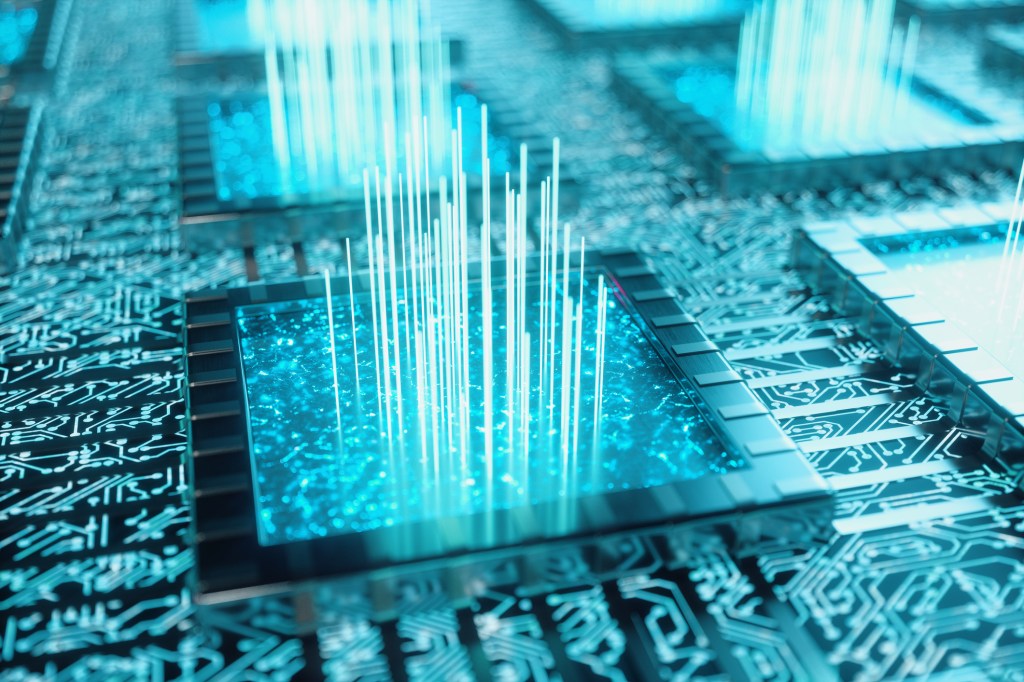A weekend statement from the Taiwanese government over its ability to provide water to the nation’s chip manufacturers in the face of an unprecedented drought make it clear that climate change is a direct threat to the foundations of the tech industry.
As reported by Bloomberg, Taiwanese president Tsai Ing-wen took to Facebook on Sunday to post about the nation’s capacity to provide water to its citizens and businesses in the face of the worst drought the nation has faced in 56 years.
The nation said that it would have sufficient water reserves to ensure manufacturing of semiconductors by companies like Taiwan Semiconductor Manufacturing wouldn’t stop.
These chips sit at the foundation of the tech industry and any disruption in production could have disastrous consequences for the global economy. Already, supply constraints have caused stoppages at automakers like General Motors and Volkswagen, and chip manufacturing facilities are running close to capacity.
The Biden administration has emphasized the need for the U.S. to strengthen its semiconductor manufacturing supply when it issued an executive order last month to address ongoing chip shortages that have idled manufacturing plants around the country.
“Taiwan’s water shortage and its effect on semis is a wake up call for every technology investor, every founder and the entire venture ecosystem. It is complexity theory made manifest and only serves to show that scalable, data-driven solutions rapidly deployed across large industrial markets are our only hope in correcting the course,” wrote Vaughn Blake, a partner at the energy-focused investment firm Blue Bear Capital.
Taiwan’s water woes and their ability to severely impact the semiconductor industry aren’t new. They were even flagged in a 2016 Harvard Business School case study analysis. And TSMC is already working to address its water consumption.
By 2016, TSMC had already worked to improve its water purification and recycling efforts — necessary for an industry that consumes between 2-9 million gallons of water per day. (Intel alone used 9 billion gallons of water in 2015). At least some of TSMC’s fabrication facilities have managed to achieve recycling rates of 90% on industrial wastewater, according to the Harvard case study.
But as Moore’s Law drives down the size and increases the demand for even more precision and fewer impurities in the manufacturing process, water use at fabs is going up. Next generation chips may be consuming as much as 1.5 times more water, which means better recycling is needed to compensate.
For startups, we need to be looking at ways to lower the cost and improve the performance of wastewater recycling and desalination, both increasingly energy-intensive propositions.
Some companies are doing just that. These are businesses like Blue Boson out of the UK, which purports to have developed a quantum-based water treatment technology. Its claims sound more like science fiction, but its website touts some of the best research universities in the world. Fido, a leak detection company also out of the UK tracks potential spots where water is wasted, and both Pontic Technology and Micronic are American companies developing water and fluid sterilization systems.
Numix, another purification startup, seems designed to remove the heavy metals that are part and parcel of industrial manufacturing. And Divining Labs out of Los Angeles is using artificial intelligence to better predict and manage stormwater runoff to collect more resources for water use.
“Upton Sinclair said, ‘It is difficult to get a man to understand something, when his salary depends on him not understanding it,’” Blake of Blue Bear Capital wrote. “Well, to all the founders and investors out there, it looks like all tech is climate tech for the foreseeable future, lest there be no tech at all.”
Early Stage is the premier ‘how-to’ event for startup entrepreneurs and investors. You’ll hear first-hand how some of the most successful founders and VCs build their businesses, raise money and manage their portfolios. We’ll cover every aspect of company-building: Fundraising, recruiting, sales, product market fit, PR, marketing and brand building. Each session also has audience participation built-in – there’s ample time included for audience questions and discussion. Use code “TCARTICLE at checkout to get 20 percent off tickets right here.































Comment